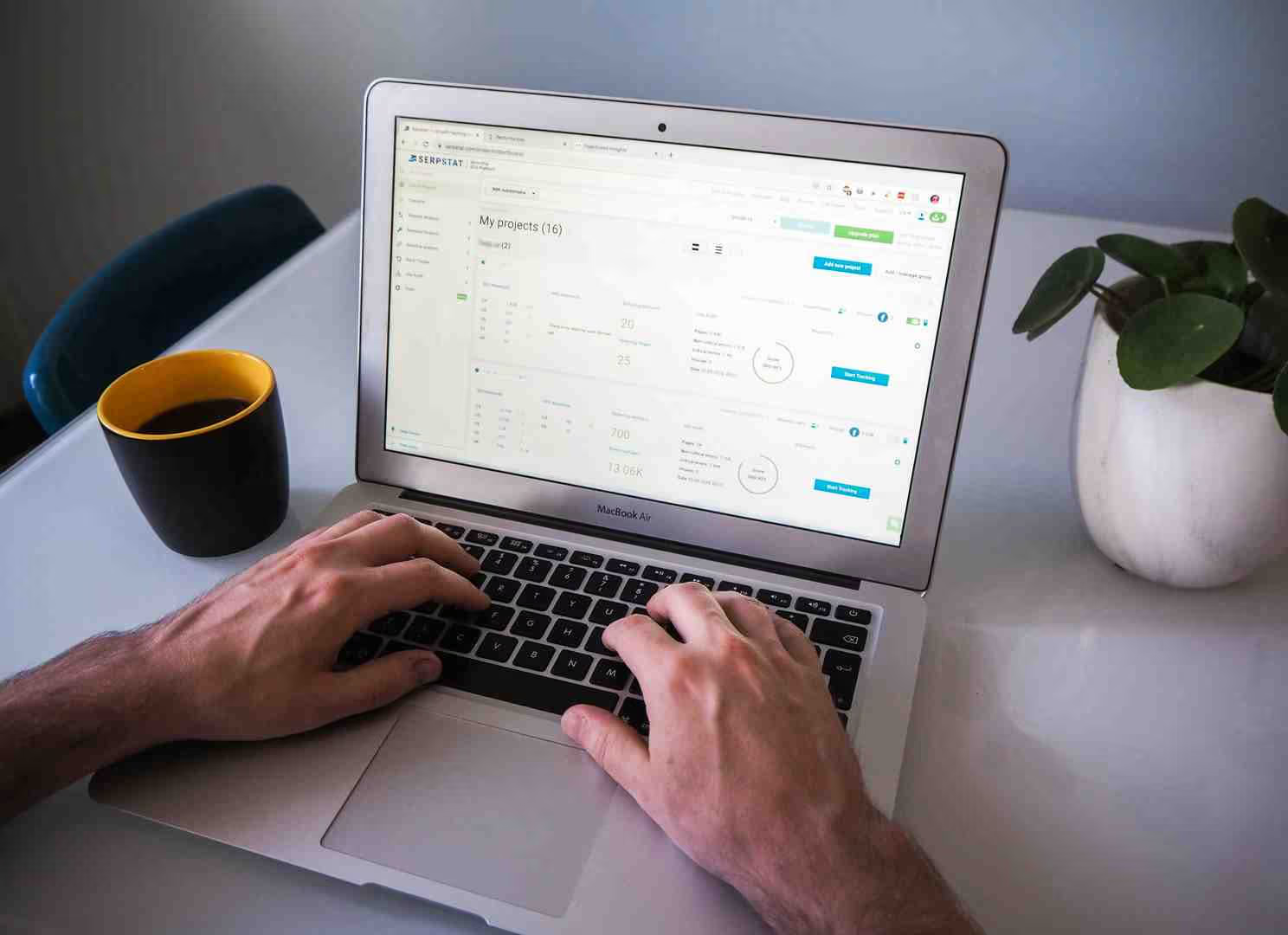Why Digital Ad Campaign Management is Critical for Business Growth
Digital ad campaign management is the systematic process of planning, executing, tracking, and optimizing marketing campaigns across multiple digital channels to achieve specific business goals.
Key Components of Digital Ad Campaign Management:
- Strategy Development - Setting SMART goals and identifying target audiences
- Channel Selection - Choosing the right mix of platforms (Google Ads, social media, email)
- Creative Development - Crafting compelling messages and visual content
- Budget Management - Allocating resources across campaigns and channels
- Performance Tracking - Monitoring KPIs like ROAS, CPA, and conversion rates
- Optimization - Making data-driven adjustments to improve results
In today's digital world, managing campaigns efficiently can be a daunting task. A 2023 study found that 78% of advertising professionals cited campaign management challenges as the most difficult part of their job. Yet companies that plan projects proactively are 356% more likely to report success.
The stakes are high. Poor campaign management can lead to wasted budgets, missed opportunities, and inconsistent messaging. But when done right, it drives measurable growth - some businesses achieve up to 300% year-over-year revenue increases through strategic campaign management.
Think of campaign management like conducting an orchestra. Each marketing channel is an instrument that needs to play its part in harmony to create a beautiful symphony. Without proper coordination, you get noise instead of music.
I'm Alexander Palmiere, founder and CEO of Refresh Digital Strategy, where I've helped launch over 200 websites and develop targeted digital advertising campaigns for small to medium-sized businesses. Through years of hands-on experience, I've seen how effective digital ad campaign management can transform a company's online presence and drive sustainable growth.
The Campaign Blueprint: From Strategy to Execution
Effective digital ad campaign management is a continuous cycle of planning, execution, tracking, and refinement. Like building a house, you need a solid blueprint before you start. This step-by-step approach ensures every dollar and minute invested contributes to your business goals.

The lifecycle of a digital marketing campaign kicks off with careful planning, moves into precise execution, demands constant tracking, and then circles back to ongoing optimization. This ensures that every dollar spent helps us reach our business goals.
Setting Clear Goals and Identifying Your Audience
Before creating ads, we must answer two key questions: What do we want to achieve? And who are we trying to reach? Without clear answers, campaigns lack direction.
Our first step is defining goals using the SMART framework: Specific, Measurable, Attainable, Relevant, and Time-bound. For example, a SMART goal is to "increase online sales by 15% within the next quarter," not just "get more sales." As Forbes notes, always start with SMART goals for a clear roadmap.
Equally important is understanding your target audience. This goes beyond demographics. We conduct deep audience research to create detailed customer personas, understanding their psychographics, interests, online behavior, and motivations. This allows us to craft resonant messages and offers. For SMBs, knowing your audience is paramount, as we discuss in The Importance of a Strong Digital Strategy for Small to Medium-Sized Businesses. This leads to efficient campaigns that reach the right people with the right message.
Choosing Your Channels: Types of Digital Marketing Campaigns
With goals and audience defined, the next step is choosing the most effective channels. A successful digital ad campaign management strategy often blends several campaign types.
Here are the main types of digital marketing campaigns:
Content Marketing Campaigns focus on creating and sharing valuable content (blog posts, e-books, videos) to attract and retain a target audience. For example, a blog series answering customer questions can drive traffic and improve search rankings.
Social Media Marketing Campaigns leverage platforms like Facebook, Instagram, and LinkedIn to build brand awareness, engage audiences, and drive traffic or sales. Consistency is key for connecting with your audience.
Email Marketing Campaigns remain a highly effective channel for direct communication. Campaigns can range from welcome series to promotional offers. Success hinges on audience segmentation and personalized automation.
SEO and PPC Campaigns are two sides of the same coin for visibility.
- Search Engine Optimization (SEO) focuses on optimizing your site and content for higher organic search rankings, driving qualified traffic for free.
- Pay-Per-Click (PPC) Advertising involves bidding on keywords to appear in paid search results. For more on paid search, see what a Paid Search Advertising Agency can do for you.
Hybrid Campaigns combine multiple channels into a cohesive strategy. For instance, blending content, social, and email marketing ensures a consistent message and maximizes reach, engaging your audience wherever they are.
The key is to select channels based on your audience's behavior, industry, and potential ROI.
Crafting Your Message and Creative Strategy
With goals, audience, and channels set, it's time to craft a message that grabs attention. This is where the art of storytelling meets the science of data.
A compelling narrative is vital. The message must address customer pain points and clearly show your value. Since the brain processes visuals 60,000 times faster than text, and over 80% of marketers credit an ad's success to its creative, strong visuals are non-negotiable.
Our content strategy includes a content calendar, keyword research, and a distribution plan to ensure a consistent brand voice and a steady stream of engaging material. Understanding Digital Marketing SEO Meaning is crucial here for building content with maximum visibility.
For ad creatives, we focus on pop-out visuals and concise, persuasive copywriting. We constantly tweak ad content and use AI for personalization, turning creatives into strategic tools designed to convert.
The Power of Data: Analysis and Optimization in digital ad campaign management
In digital ad campaign management, data is the compass that guides every decision. It highlights what's working and reveals new opportunities. Without data analysis, even the best campaigns can fail.

We practice data-driven optimization. A static strategy leads to wasted ad spend. By constantly tracking performance, we make real-time adjustments to keep campaigns moving efficiently toward business goals.
Key Metrics and KPIs to Track for Success
To measure campaign performance, we track specific Key Performance Indicators (KPIs) that provide measurable insights for informed decisions.
Here are some of the most important KPIs we monitor:
Return on Ad Spend (ROAS) measures the revenue generated for every dollar spent on advertising, directly indicating profitability.
Cost Per Acquisition (CPA) shows the cost to acquire a new customer or lead. A lower CPA means greater efficiency.
Click-Through Rate (CTR) is the percentage of viewers who click an ad. A high CTR suggests a compelling message and creative.
Conversion Rate is the percentage of users who complete a desired action (e.g., a purchase). It measures the campaign's effectiveness at driving action.
Engagement Metrics (likes, shares, comments) show how well content resonates with the audience, especially for social and content campaigns.
We also monitor website traffic, email open rates, bounce rates, and lead-to-sale conversions. Tracking these small business metrics is vital for growth. Campaign analytics provide the hard data needed to justify and refine our strategy.
The Role of A/B Testing and Creative Optimization
Optimization is a continuous process, and A/B testing is a key tool. We create two or more versions of an ad or landing page with one variable changed, then test them on similar audiences to see which performs better.
We use A/B testing to perfect elements like:
- Ad Copy: Experimenting with different headlines and calls-to-action.
- Visuals: Testing different images, videos, or graphic designs.
- Calls-to-Action: Trying variations like "Shop Now" vs. "Learn More."
- Landing Pages: Optimizing layouts, content, and forms for conversions.
This process continuously refines campaigns. For example, apparel brand Vuori shifted more ad spend to Facebook and Instagram Reels, resulting in a 17% reduction in their cost per purchase. This shows the power of creative optimization and flexible budgeting guided by performance data. Understanding what resonates with the audience allows for data-driven decisions that boost efficiency and ROI.
Leveraging Analytics for Data-Driven Decisions
Analytics tools help us understand the trends and behaviors driving campaign performance.
We use platforms like Google Analytics for a full picture of website traffic and user behavior. Combined with social media and CRM data, we get a holistic view of the customer journey. Tools like Display & Video 360 integrate with other solutions, linking data and workflows for greater efficiency and better results.
For example, we use analytics to:
- Identify trends: Spot patterns in user behavior and campaign performance.
- Course correction: Pinpoint the cause of performance drops, such as a failing ad or a broken landing page.
- Budget reallocation: Move ad spend to the best-performing channels and creatives in real-time.
- Audience refinement: Use data insights to further segment and personalize audience targeting.
Unified reporting across platforms is key to tracking performance holistically and making proactive adjustments. By consistently analyzing data, our decisions are based on evidence, not guesswork, leading to better results and ROI. Learn more about how this fits into a wider strategy in our article on SEO Services Digital Marketing Strategy.
The Marketer's Toolkit: Essential Campaign Management Tools
In digital ad campaign management, manual methods and spreadsheets lead to wasted effort. Modern tools are designed to streamline workflows, improve collaboration, and save time and money.

Specialized campaign management tools help us plan smarter, track data precisely, and collaborate seamlessly. They accelerate campaign launches, help avoid costly mistakes, and provide clear insights into performance.
Core Steps in digital ad campaign management
No single tool does everything, so successful digital ad campaign management uses a smart combination of platforms. We rely on these essential tool categories:
CRM/Marketing Automation Tools: The heart of marketing operations, these tools (HubSpot, Salesforce, ActiveCampaign) help manage customer relationships, automate tasks, and track leads. They are essential for lead tracking, customer segmentation, and personalized email outreach.
Project Management Tools: To keep teams organized and in sync across multiple campaigns, tools like Hive, Asana, and Trello help plan and track tasks, deadlines, and responsibilities, ensuring efficient execution.
Email & Social Media Tools: Platforms like Hootsuite, Buffer, and Mailchimp are key for managing online presence. They allow for post scheduling, audience engagement, targeted ads, and email automation.
Analytics Tools: Data is everything. Tools like Google Analytics, Google Search Console, and Semrush are invaluable for gathering and analyzing performance data to make fact-based decisions.
Specialized ad platforms like Google Ad Manager and Display & Video 360 offer fine-tuned control for specific ad types. For example, Display & Video 360 provides end-to-end features like creative workspaces and automated bidding, improving efficiency and results for larger campaigns.
How to Choose the Right Tools for Your Business
Picking the right tools depends on your unique business needs, budget, and goals. There's no one-size-fits-all answer. When evaluating tools, consider these factors:
Business Needs and Campaign Types: Does the tool support the types of campaigns you run, whether social, search, or multi-channel?
Budget: Compare features against your budget. Use free trials to test a tool's value before committing.
Scalability: Choose a solution that can grow with your business, handling more data, campaigns, and users over time.
Ease of Use: A complicated tool won't be used. Look for an intuitive interface and simple navigation.
Integrations: Ensure the tool integrates with your existing marketing stack (CRM, website, ad platforms) to automate workflows and avoid data silos.
Automation and AI Capabilities: Look for strong automation features and AI capabilities for content creation, personalization, and performance optimization.
The best tools simplify tasks, provide useful insights, and free up time for strategy. For a broader overview, see our guide to marketing software.
Best Practices and Winning Examples
Even with the best tools, successful digital ad campaign management requires following proven best practices and learning from impactful campaigns.
Magic happens with seamless team collaboration. When creative, analytical, and digital specialists share insights and work toward common goals, campaigns excel. Budget allocation becomes a dynamic process of monitoring and adjusting spend for maximum value, and a consistent brand voice turns browsers into loyal customers.
At Refresh, we've seen how this integrated approach transforms results. Our Digital Strategy Consulting and SEO services showcase exactly this kind of holistic thinking.
Best Practices for Effective digital ad campaign management
Through experience, we've learned that certain principles separate winning campaigns from the rest. These are battle-tested strategies that deliver results.
Proactive planning is the foundation. Before launch, define clear goals, conduct deep audience research, and map out content strategies. Proactive planning dramatically increases the likelihood of success.
Data security and compliance is critical. With tightening privacy regulations, protecting customer data is essential. Ensure every campaign is compliant and keeps sensitive information secure.
Sales and marketing alignment prevents silos. Misalignment is a top reason for revenue decline, according to HBR. We foster strong connections between these teams, ensuring data flows smoothly into CRMs and both pursue the same goals.
Continuous learning and adaptability is key. The digital world changes fast. Treat every campaign as a learning opportunity and stay flexible to pivot with new trends.
Fostering team collaboration ties it all together. Open communication and the right tools keep the entire team in sync, making campaigns more resilient, creative, and better performing.
Case Study: McDonald's Viral Success
Lessons from masters can be invaluable. The McDonald's x BTS collaboration is a prime example. Instead of a simple endorsement, McDonald's created the "BTS Meal," promoted heavily on social media with exclusive merchandise. The campaign brilliantly tapped into McDonald's nostalgia and the fierce loyalty of the BTS fanbase.
The results were staggering: 11.5 million social media mentions and a 250% jump in McNuggets sales in South Korea. They repeated this success with the "Grimace birthday campaign," a limited-edition shake blending nostalgia and modern marketing that trended on Twitter and TikTok.
The lesson: Authenticity and cultural relevance drive massive organic reach. Tapping into existing communities with shareable experiences, using a hybrid approach of product, social, and experiential marketing, can yield incredible results.
Case Study: Allbirds' Sustainability-Driven Branding
In contrast to McDonald's viral approach, Allbirds built its brand on sustainability, demonstrating how values-driven marketing creates lasting customer connections.
Allbirds proved its eco-friendly claims by using sustainable materials and transparently labeling products with their carbon footprint—a bold move. Their collaboration with Adidas on the "FutureCraft.Footprint" shoe aimed to create a performance shoe with just 2.94 kg CO₂e per pair, demonstrating a long-term commitment to their values.
While specific sales figures are private, Allbirds has become a leader in sustainable fashion, building remarkable trust and loyalty among consumers who value authenticity.
The takeaway: Genuinely integrated brand values are powerful differentiators. Transparency and purpose build deep connections. Success isn't always viral; sometimes it's consistent, long-term brand building aligned with core values.
Conclusion
We've journeyed through digital ad campaign management, from setting SMART goals to data-driven optimization. Effective campaign management is both an art and a science.
We began with the strategic foundation: understanding your audience and goals. We explored channel mastery to find where your audience lives online and discussed creating compelling creatives that stop the scroll. The most exciting part is data-driven optimization, where we act as digital detectives, tracking KPIs and running A/B tests to turn good campaigns into great ones. The right toolkit streamlines this entire process. A holistic approach is key; every channel should support the others, like a well-orchestrated symphony.
Data is the compass for smart decisions. Strategic campaign management boosts visibility, builds brand awareness, and creates lasting customer loyalty.
At Refresh, we've spent years perfecting this holistic approach for small to medium-sized businesses. We've launched over 200 websites and developed targeted campaigns that deliver meaningful results. We know that traction takes time—often 3-6 months—but the outcome is worth the wait.
Our commitment is to long-term partnerships, not quick fixes. We grow with your business, continuously refining and optimizing your campaigns so you can focus on what you do best.
Ready to see what strategic digital ad campaign management can do for your business? We'd love to show you. Visit us at https://www.letsrefresh.io and let's start building something great together.




.avif)
.avif)

